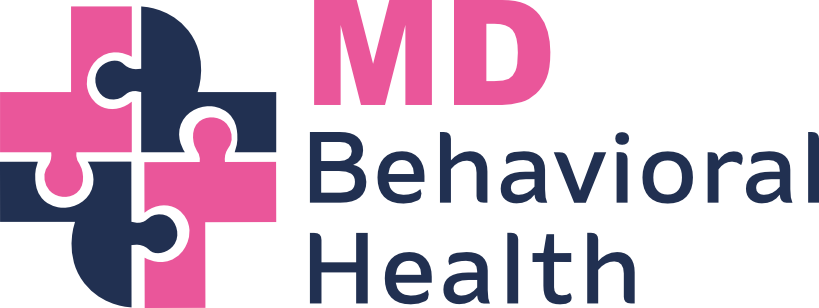At Maryland Behavioral Health, we think that everybody should be able to understand mental health. There is one condition that most people hear about, and that is major disorder depression (MDD).
It is not just depression—it is worse. In this blog, we will walk you through what it is, how to tell if a person has it, and what treatments can cure it.
What is Major Depressive Disorder?
This disorder describes a person feeling very sad, hopeless, or empty for a significant amount of time.
It is more than feeling sad for a couple of days. These emotions remain for at least two weeks, almost every day.
In MDD, people generally don’t feel like doing things that they are used to. They may lack the energy to do things. They may alter the way they sleep, eat, or think.
Signs & Symptoms
These are some of the symptoms and signs of major depressive disorder. It is not necessary that a person should have all of them, but a lot of them, and they should last for some duration:
Mood & Feelings
What It Looks Like: Feeling extremely sad, empty, or hopeless most of the day; feeling guilty or worthless.
Interest / Pleasure
What It Looks Like: No longer enjoying things that once caused enjoyment (games, hobbies, friends).
Sleep
What It Looks Like: Trouble sleeping or remaining asleep, or sleeping too much.
Energy & Activity
What It Looks Like: Feeling very tired, moving or speaking more slowly, or maybe feeling agitated.
Appetite / Weight
What It Looks Like: Eating more or less than normal; gaining or losing weight as a result of not trying.
Thinking & Concentration
What It Looks Like: Having a hard time concentrating, making choices, remembering things.
Self-Thoughts / Suicidal Thoughts
What It Looks Like: Thinking about death, or thinking you’d be better off dead; or wanting to hurt yourself.
What Causes It?
Nobody knows one reason. Often, many things happen at once:
- Changes in brain chemicals (chemical imbalance)
- Family history—if someone in your family has had depression
- Life events like losing someone, being bullied, having accidents, school or work pressures
- Other medical issues and sometimes medications may make it worse or trigger depression
How Is It Different from Manic Bipolar Depression?
You might also hear manic bipolar depression. That is also known as bipolar disorder, formerly called “manic depression.”
These are the key distinctions:
- In bipolar disorder, there are mood swings: depressive (being extremely low) and manic or hypomanic episodes (being extremely high, extremely active, maybe not needing much sleep).
- Major disorder depression lacks these manic highs. It’s basically the low mood stage. If one has a history of mania, then he or she is not diagnosed with MDD but rather bipolar.
Treatment Options: How to Feel Better
The good news is that severe depression can be treated. Most individuals get better with treatment. Here are the main treatments:
Talk Therapy (Psychotherapy)
- Talking with a counselor, psychologist, or therapist.
- Types are Cognitive Behavioral Therapy (CBT), where you will learn how to change negative thinking patterns.
- Other therapies treat relationships, emotions, and habits.
Medication
- Antidepressants are medications that help balance brain chemicals.
- It may take a few weeks to improve once medicine is begun. Physicians track side effects.
Lifestyle Changes
- Exercise is helpful. Even daily walking can have an impact.
- Good sleep: maintaining a consistent bedtime, not too much computer time before bedtime.
- A healthy diet, abstaining from alcohol or drugs.
Other Support & Therapies
- Occasionally, individuals receive assistance from groups (support groups), friends, or relatives.
- In very few cases, therapies like brain stimulation (such as electroconvulsive therapy or newer methods) can be used when other therapies have not worked.
What You Can Do—If You Believe Someone (Or You) Has Major Depression
- Talk with a doctor or mental health practitioner. Tell the truth about how you feel.
- Don’t wait—treatment sooner is usually better.
- Note down symptoms: when they started, how frequently, how they are worse or slightly improved.
- Remain in touch: friends, relatives, school, neighborhood. Let others know how they can help.
Conclusion
It is hard to live with a major disorder depression, but remind yourself that you’re not broken, and you’re not alone. Other people have been there, and with appropriate care—therapy, medication, lifestyle changes, and support—you can get better and live a happier life.
If you or your beloved is afflicted with Major Depressive Disorder or wants to understand depression in comparison to manic bipolar depression, don’t remain silent. There is assistance, and the first and most powerful step toward recovery is reaching out for it.
We’re here to listen, counsel, and guide you every step of the way at Maryland Behavioral Health. Contact us today to schedule an appointment and start taking that first step towards becoming yourself again.
